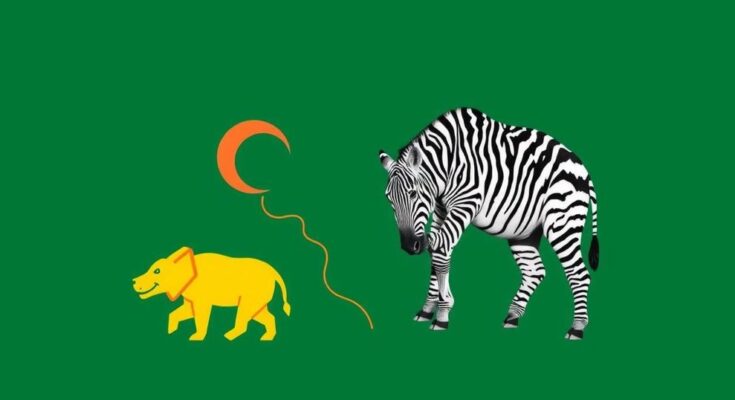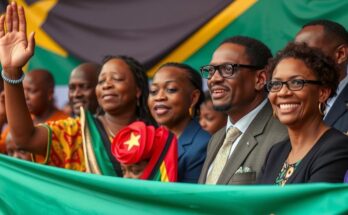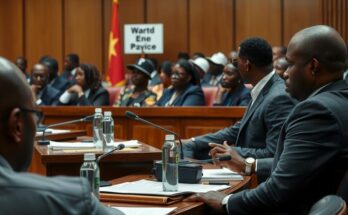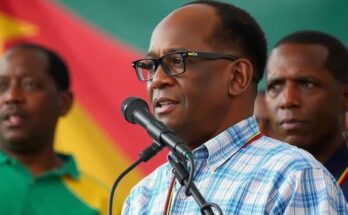Botswana is preparing for pivotal elections on October 30 against a backdrop of rising unemployment and declining trust in democracy, with nearly 80% of citizens suspecting corruption among leaders. The leadership has struggled to diversify the economy and combat inequality, risking the country’s strong reputation for transparency. Change is sought as the ruling party faces a fragmented opposition, yet perceptions of political rivalries threaten to undermine the country’s governance successes.
Botswana is at a critical juncture as it prepares for elections on October 30, with pressing issues such as soaring unemployment and declining satisfaction with its democratic processes. Over the past decade, citizen trust in democracy has plummeted by 40 percent, while nearly 80 percent of the population suspect corruption among presidential officials. Despite a historic trajectory of progress since independence in 1966, these disturbing trends cast a shadow on the future of the nation. The country’s challenges are multifaceted. Although external factors such as a downturn in the diamond industry and exacerbating droughts due to climate change play a significant role, government leadership has struggled with effectively tackling inequality and diversifying the economy. Delays in implementing strategies, poor investments in unsustainable industries, and failure to enhance vital infrastructure have compounded the difficulties facing the nation. Particularly alarming are the growing perceptions of corruption and judicial interference, undermining Botswana’s previously strong reputation for transparency and good governance, which are crucial for attracting international investment. Amidst a wave of discontent, there is a growing yearning for change, particularly after the Botswana Democratic Party (BDP) has maintained control for nearly sixty years. While the prospects for the BDP to win again—potentially allowing President Masisi to continue—appear strong due to a fragmented opposition and incumbency advantages, the risks of deepening disillusionment grow if citizens do not perceive elections as a means to demand accountability from their leaders. The ongoing personal conflicts between President Masisi and his predecessor, Ian Khama, have detracted from substantive policy discussions, fostering cynicism among the electorate about the relevance of the political process. This sentiment was echoed in Masisi’s 2018 remarks at the Council on Foreign Relations, where he asserted, “Botswana is much more important than anybody’s ego,” committing to uphold democratic principles. Nonetheless, the continued focus on personal rivalries threatens to waste Botswana’s potential as a leading example of effective governance that combats the resource curse for its citizens.
Botswana’s political landscape is significant within the context of African governance and democracy. Historically, it has achieved remarkable success as a stable, democratic nation after gaining independence in 1966. By evolving from a low-income country to an upper middle-income status while upholding the rule of law, Botswana has been widely regarded as a model for good governance in Africa. However, recent developments, such as increasing dissatisfaction with democracy, unemployment, and corruption, pose serious questions about its political future and governance structures, necessitating urgent reforms and trust-building measures between citizens and their leaders.
In conclusion, Botswana stands at a pivotal moment with its upcoming elections, as citizens grapple with rising discontent over unemployment and diminishing faith in democratic processes. With the ruling party poised to maintain power amidst concerns of corruption and ineffective governance, the need for transformative change and a restoration of public trust has never been greater. The elections present an opportunity for the nation to realign its political priorities beyond individual egos towards collaborative efforts for genuine progress and development, reinforcing its legacy as a beacon of effective governance in Africa.
Original Source: www.africa.com




